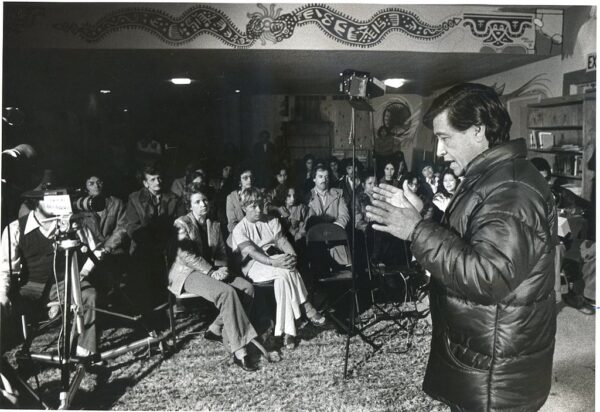
Chavez’s work, though sometimes controversial, proved instrumental in redefining—and improving—the relationship between farm owners and agricultural workers. Chavez, and the organizations that he founded, also encouraged migrant workers and people in low-income communities to participate in the democratic process.
In 1994, President Bill Clinton posthumously awarded Chavez the Presidential Medal of Freedom, the United States’ most-esteemed civilian medal.
Today, this work is continued by the Cesar Chavez Foundation and organizations associated with Chavez’s Farm Workers Movement.
Cesar Chavez’s military service
Throughout most of his life, Cesar Chavez worked to improve work conditions for farm workers and fight discrimination. Chavez also briefly served in the U.S. Navy.
Chavez enlisted in 1946, not long after the end of World War II. After training in San Diego, he was first stationed in Saipan, then later Guam, before he returned to California. In 1948, Chavez chose to leave the Navy to be with his family and was honorably discharged.
The USNS Cesar Chavez cargo and ammunition ship is named after the civil rights leader. (Photo: U.S. Navy)